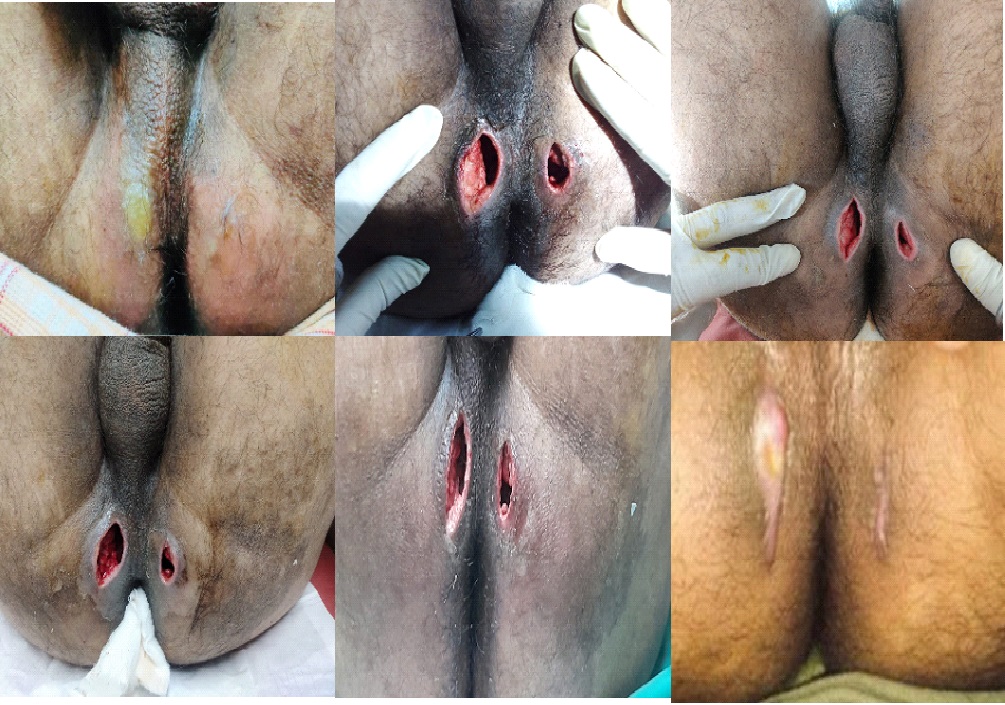An Ayurvedic Regime in the Management of Necrotizing Fasciitis: A Case Study
DOI:
https://doi.org/10.47070/ayushdhara.v10iSuppl3.1268Keywords:
Ischiorectal abscess, Jatyadi oil, Kotha, Necrotizing fasciitis, Panchvalakala decoctionAbstract
Necrotizing fasciitis is a fulminant and life-threatening condition characterized by progressive gangrene of the soft tissues affecting commonly abdominal wall and perineal region cause of which is polymicrobial infection. Necrotising fasciitis is a rapidly spreading infection that produces necrosis of the subcutaneous tissues and overlying skin. It is a surgical emergency that, usually necessitates immediate surgical debridement. High mortality rates are seen in necrotizing fasciitis involving perineum and external genitals especially in males range from 6.3 to 50%, which indicates that the variable outcome of patients with the disease is multifactorial. Infective microorganisms involve in sepsis in anorectal region are difficult to control as antimicrobials used to treat such infections have little penetration in tissues in anorectal region. Panchavalkala decoction shows properties like antiseptic, anti-inflammatory, immune-modulatory, antioxidant, antibacterial, antimicrobial wound purifying and healing, astringent properties in Dustavrana. We are presenting here a case of 32-year-old gentleman who was initially diagnosed as ischiorectal abscess having no history of diabetes and any chronic illness and visited in anorectal OPD of our hospital with severe pain in perineal region and fever in the past 6-7 days. He was treated as a surgical emergency with proper wound debridement and post-operative wound management was done with cleaning with decoction of Panchvalakala, dressing with Jatyadi oil and oral Ayurvedic medications.
Downloads

Downloads
Published
Issue
Section
License
Copyright (c) 2023 AYUSHDHARA

This work is licensed under a Creative Commons Attribution-NonCommercial-ShareAlike 4.0 International License.


